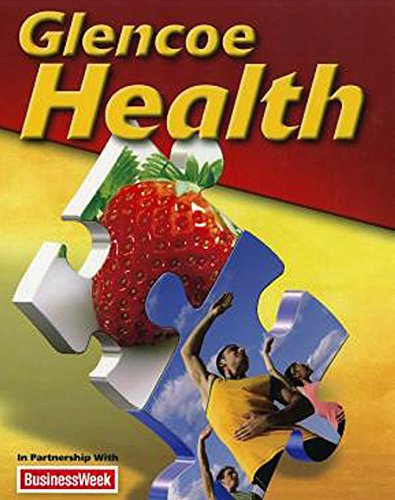
Glencoe Health
1st Edition
ISBN: 9780078913280
Textbook solutions
All Solutions
Section 17.3: Birth Through Childhood
Exercise 1
Solution 1
Solution 2
Step 1
1 of 2
1. Walks well
2. Picks up objects without losing balance
3. Throws balls overhead, but inaccurately
4. Draws recognizable pictures
5. Begins showing defiance, disagreement
6. Behaves affectionately
7. May wish to help adults
8. Begins being bothered by fears
9. Desires approval
10. Bosses other children
11. Takes part in brief group activities
Result
2 of 2
Developmental tasks that children learn in early childhood are usually connected with walking well and with balance, starting to behave affectionately, wishing to help adults or desire approval. See the explanation for more.
Step 1
1 of 1
1. Walks well
2. Picks up objects without losing balance
3. Throws balls overhead, but inaccurately
4. Draws recognizable pictures
5. Begins showing defiance, disagreement
6. Behaves affectionately
7. May wish to help adults
8. Begins being bothered by fears
9. Desires approval
10. Bosses other children
11. Takes part in brief group activities
2. Picks up objects without losing balance
3. Throws balls overhead, but inaccurately
4. Draws recognizable pictures
5. Begins showing defiance, disagreement
6. Behaves affectionately
7. May wish to help adults
8. Begins being bothered by fears
9. Desires approval
10. Bosses other children
11. Takes part in brief group activities
Exercise 2
Solution 1
Solution 2
Step 1
1 of 2
School is important part because it brings children obligations. They also learn how to get along with peers, learn about different roles in society, and develop a conscience.
Result
2 of 2
School becomes an important part of a child’s life during late childhood.
Step 1
1 of 1
School becomes an important part of a child’s life during late childhood.
Exercise 3
Step 1
1 of 2
Scoliosis often occurs during the growth spurt just before puberty and cause of most of it is unknown.
Result
2 of 2
Scoliosis is an abnormal, sideways curvature of the spine.
Exercise 4
Step 1
1 of 2
Positive parenting can have good effects on a child’s autonomy and independence. Parents who support autonomy are involved in a child’s life of course, but they encourage independence and it is important for them to give a child both age-appropriate autonomy and agency. By doing so, they help them learn about family values and social norms. This can have effects such as greater emotional well-being of a child or developing at an appropriate level.
Result
2 of 2
Positive parenting help children learn about values and social norms and can have effect such as greater emotional well-being.
Exercise 5
Step 1
1 of 2
When a parent allows autonomy to a child, he helps them in creating a sense of mastery over their body and mind, and also over the environment. As a result, they are starting to develop independent and critical thinking, motivation and confidence.
Result
2 of 2
They help children in creating a sense of mastery over their body and mind, but also environment.
Exercise 6
Step 1
1 of 2
A vision screening is an eye test that looks for potential vision problems and eye disorders. If detected early, they can be treated. Also, eye tests can detect early signs of serious health problems such as high blood pressure or risk of stroke and diabetes. A hearing screening is a test that examines how well you hear different sounds. Problems with hearing can affect the balance in your inner ear and your awareness of hazards in your environment. So both, vision or hearing problems, can increase your risk of falling. Checking regularly and looking after your vision and hearing, can prevent falling.
Result
2 of 2
Vision or hearing can increase your risk of falling, and screenings could detect the problem early enough to deal with those problems properly.
Exercise 7
Step 1
1 of 2
In early childhood children start to develop a sense of autonomy. They are learning new things and learning to play as part of a group. During middle and late childhood children gain greater control over their bodies, and they master many gross and fine motor skills. Rate of growth slows during these stages because of changes in the brain. In middle childhood they learn to initiate play rather than following the lead of others and start learning about emotions. In late childhood school becomes an important part of their lives. It expands their world beyond the boundaries of their own family and brings obligations. They learn how to get along with their peers who start to take center-stage in their lives. Peers acceptance could have consequences for their emotional development.
Result
2 of 2
After developing a sense of autonomy, children in middle and late childhood gain greater control over their bodies and master many gross and fine motor skills. Their growth slows due to massive changes in their brain. School and peers becomes an important part of their lives..
unlock

